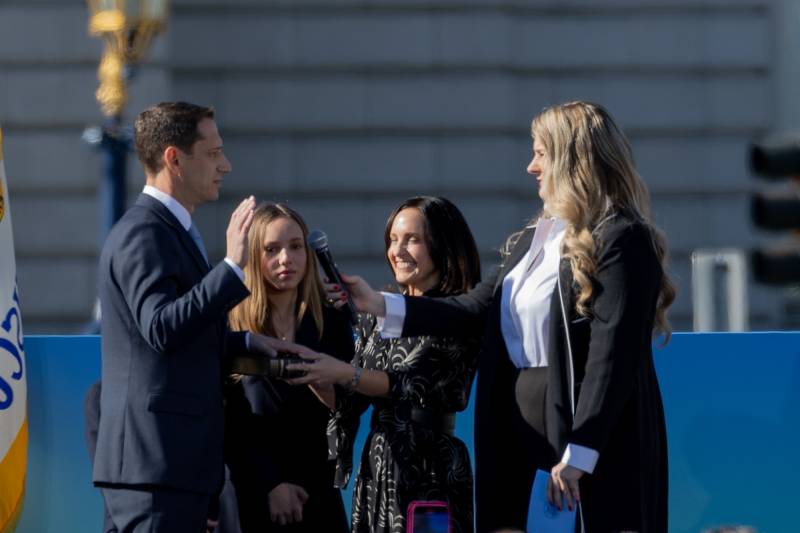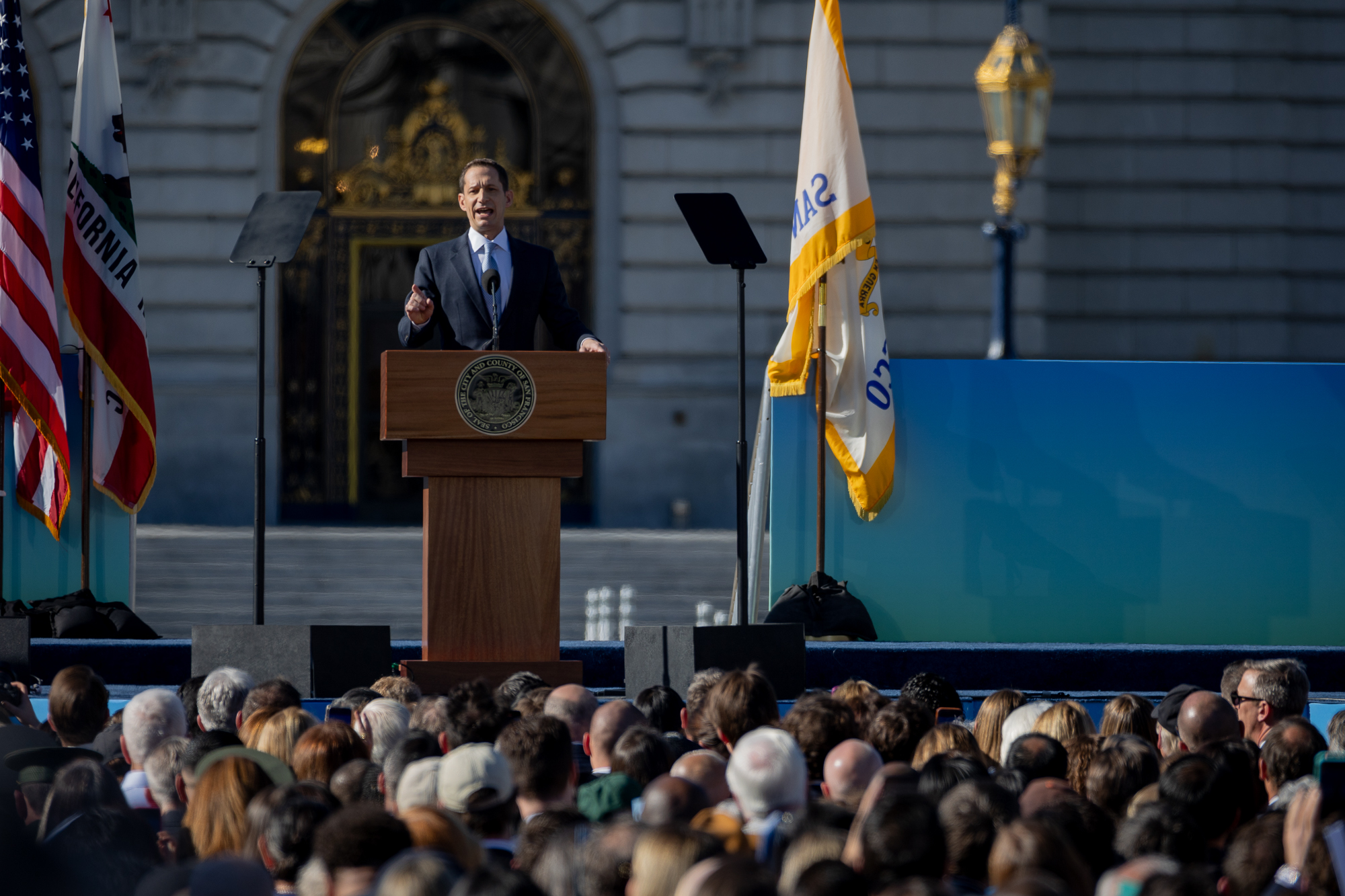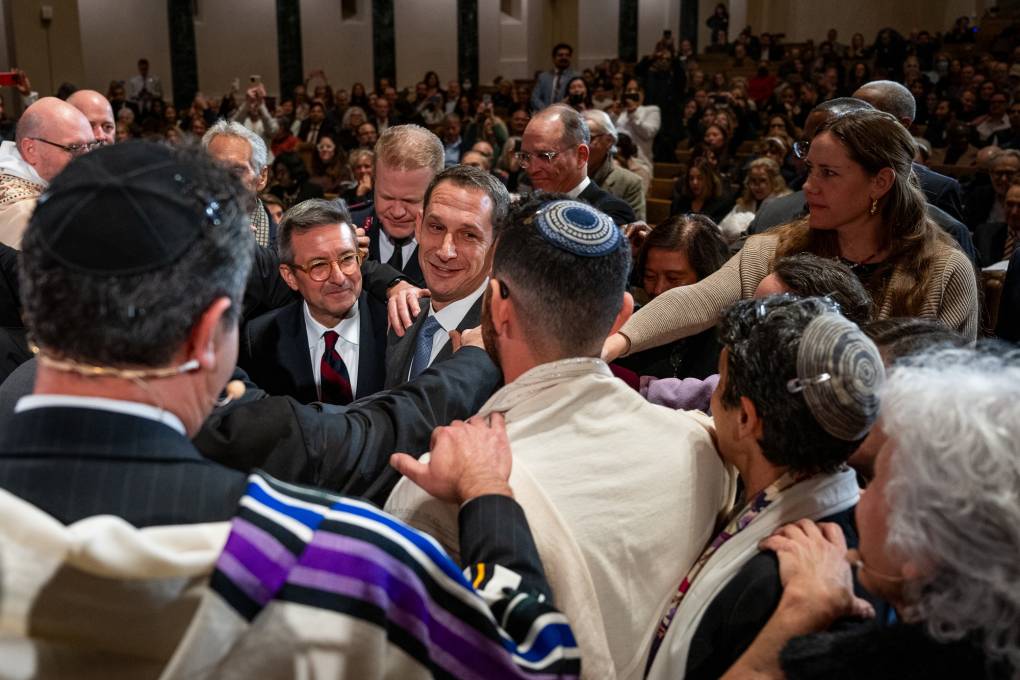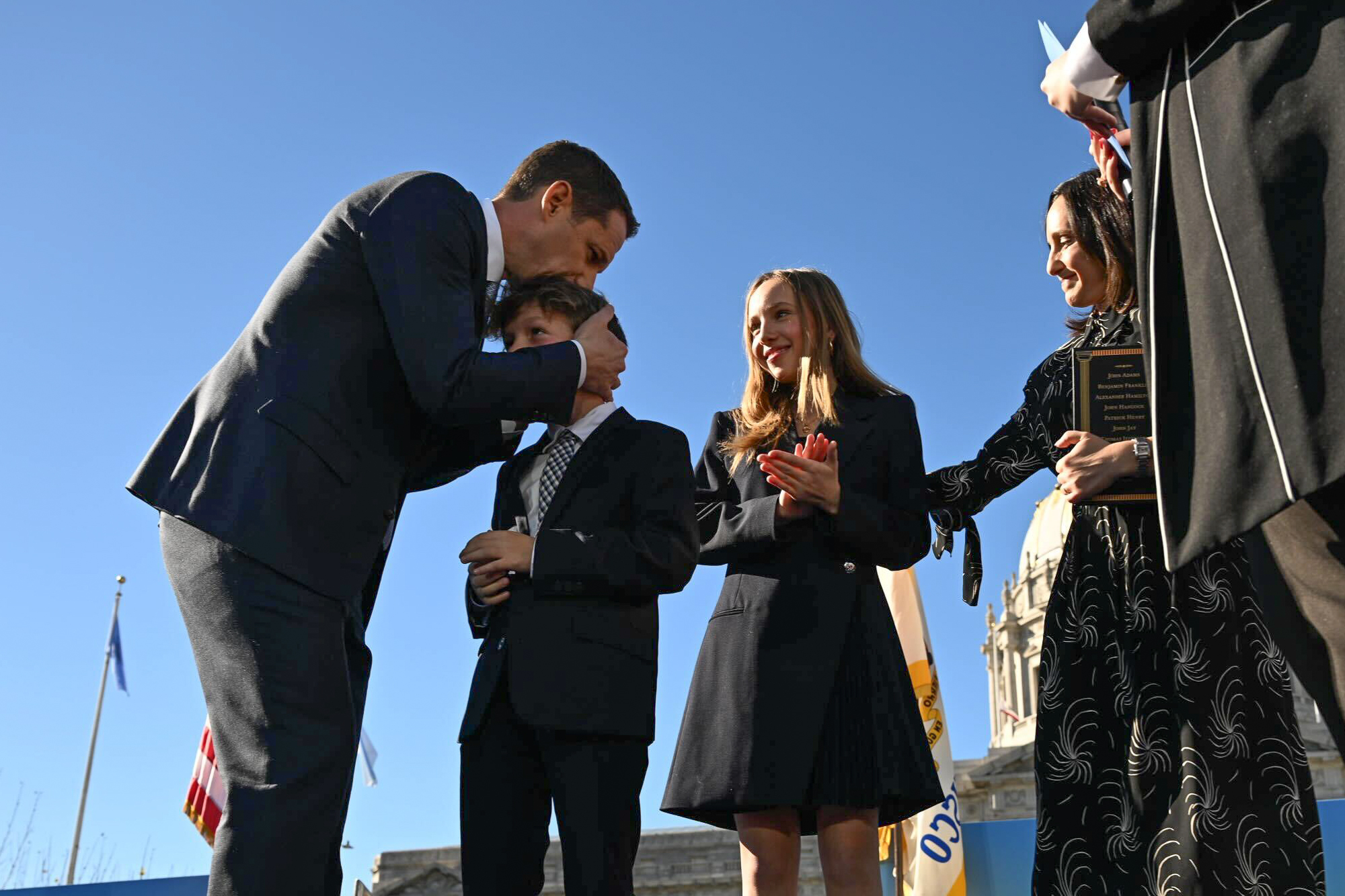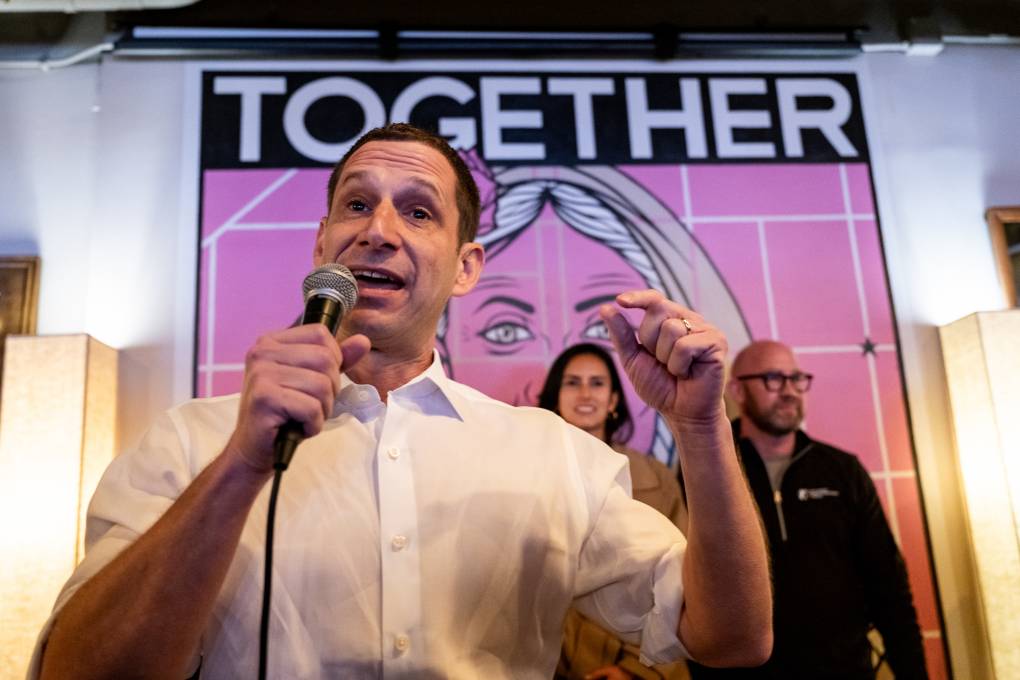Daniel Lurie is officially San Francisco’s mayor — and he’s not wasting any time easing into his first elected office. In his inaugural address on Wednesday, Lurie outlined plans to crack down on the city’s drug and homelessness crises and expedite notoriously slow City Hall functions.
Lurie made a move toward a much-discussed campaign promise, announcing a package of fentanyl emergency ordinances. Though he had often vowed to declare a fentanyl state of emergency on his first day in office, experts had said it likely wouldn’t be possible under city rules.
“As we speak, the San Francisco Police Department and Sheriff’s Department are rapidly shifting resources and personnel to bring drug dealers to justice and clean up our streets,” he told the hundreds of people gathered at Civic Center, including former mayors Willie Brown, Art Agnos, Frank Jordan and the incoming Board of Supervisors.
